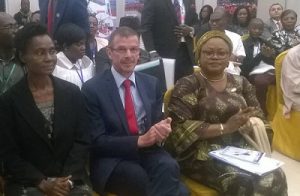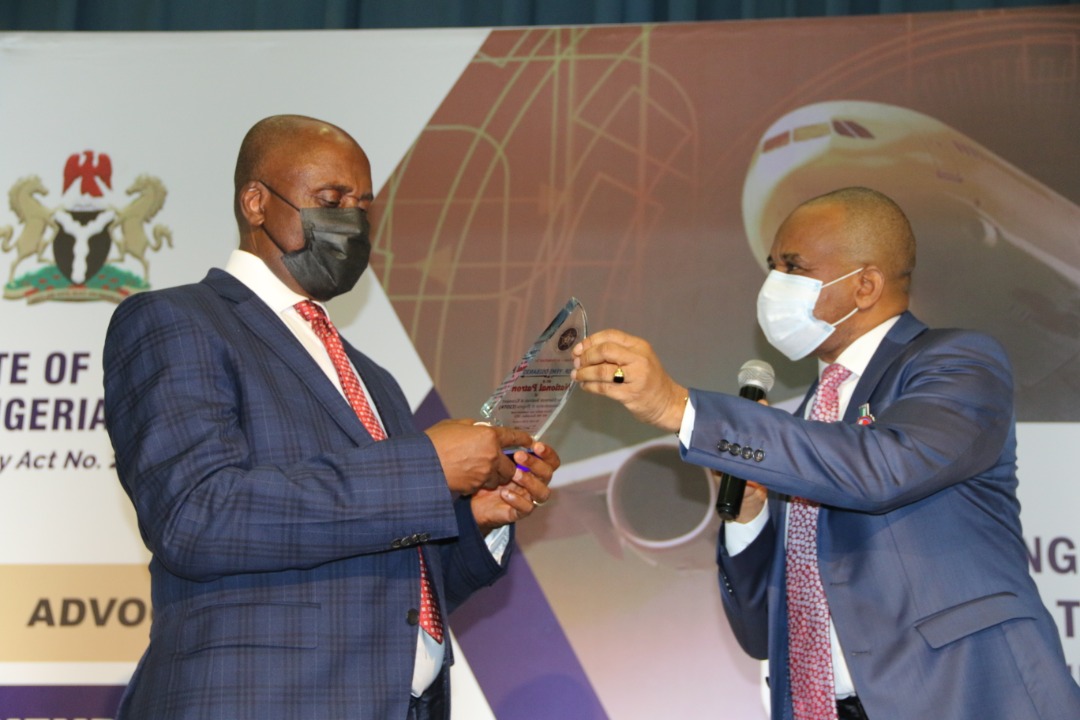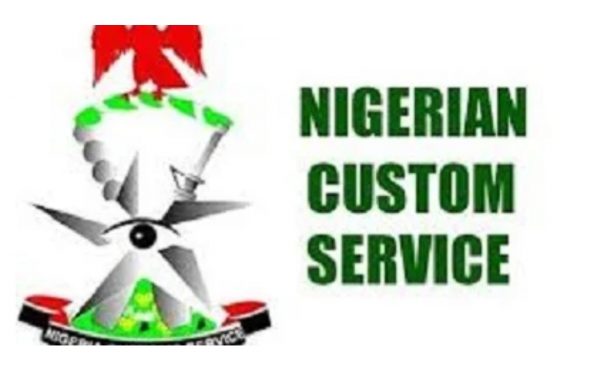Maritime Development: African Nations Need Comprehensive Maritime Policies

By Kenneth Jukpor
Maritime experts have posited that a comprehensive maritime policy framework is a prerequisite for developing maritime infrastructure across the African coastal states.
This position was first posited by the Former Chairman of the International Maritime Organization (IMO) Legal Committee, Dr. Kofi Mbiah during the public lecture at the ongoing 2018 Lagos International Maritime Week.
According to Dr. Kofi, developing maritime infrastructure as a catalyst for economic growth is only meaningful when it finds expression in a comprehensive maritime policy framework.
“A maritime policy that takes account of all the key elements of the maritime domain, their utilization and preservation. It is within this context that maritime infrastructure as a catalyst for Africa’s economic prosperity makes meaningful examination.
“The development of Maritime Infrastructure in African countries should therefore be reckoned within the framework of maritime clusters and not mere physical infrastructure existing in isolation. That would be the only means to give vent to the tenets of the Blue Economy”
While expressing concern that Nigeria hasn’t developed a comprehensive maritime policy, a maritime lawyer, Mr. Emeka Akabogu concurred with Dr. Kofi that such all-inclusive policy initiative was necessary for growth in Nigeria’s maritime sector.
“Indeed it has been surprising that Nigeria doesn’t have a comprehensive national maritime policy. There was a time when we had a National Shipping Policy Act but that Act was really not a shipping policy but a legislation which was meant to put in place the defunct National Maritime Authority (NMA).
Akabogu who spoke to MMS Plus correspondent at the event, stressed that the federal government should make deliberate and concerted efforts towards ensuring that this kind of policy is developed, noting that such policy would be able to cover development in tonnage, growth of the support services to ensure that the country becomes a hub of maritime activities in Africa and ensure that the industry grows from the assets and infrastructure to the intangible services.
In his presentation, Dr. Kofi had advised that maritime policies of African countries must undergo a paradigm shift, from the dwell on individual modes of transport and development in silos to a new strategy that embraces a balanced and integrated, modally complementary transport system that not only takes account of sustainability and technological changes but which also takes account of the wider multiple uses of the oceans.
“It must be a policy that takes account of international ocean governance, maritime spatial planning, quay technologies, integrated maritime security and surveillance with sustainable ocean use considerations. Its scope must be made to encompass maritime transport, ports and terminals, rail connections, manufacturing and construction, boat and ship building, repair yards, aquaculture, offshore oil and gas, fishery and communication systems. In this, we are guided by the recent South African comprehensive Maritime Transport Policy; the gravamen of which provides: “An integrated system that involves the design, construction, operation, management, servicing and maintenance of merchant, leisure and other ships in the service of seaborne trade”.
In her welcome address, the Convener of the event, Mrs. Oritsematosan Edodo- Emore stated that the development of the maritime industry in Africa would be impossible without the development of maritime infrastructures.
“We take the view that the development of the maritime industry in Africa rests squarely on the shoulders of Africans, who must boldly define the vision for the industry in the continent, run with that vision and seek international cooperation to actualize the vision. It is also our responsibility to take advantage of the global shortage of skilled maritime manpower, by developing our maritime education and training institutions to produce the skilled manpower necessary for the continent and the global market” she said.
She expressed joy that the Lagos International Maritime Week had continued to record growth with the 2018 edition having international delegates from France, Norway and Dubai.
Highlighting the significance of the annual programme, the Convener said; “This event brings together maritime stakeholders from around the globe to deliberate on current challenges facing the industry, network and proffer solutions”








